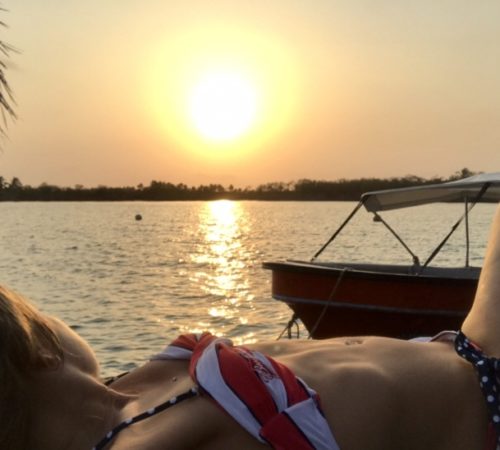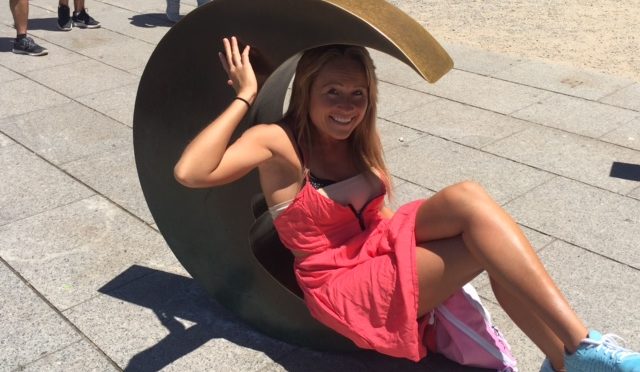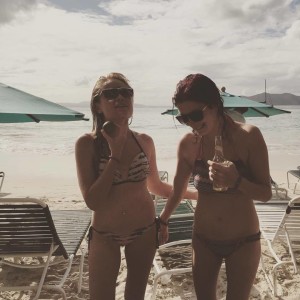
The most valuable thing I chose to do in my 20s was taking opportunities to be educated, work, and live abroad. Of course, now during the times of the pandemic when non-essential travel is next to impossible, I am grateful even more. But even ‘pre-COVID’, and before I decided to tie the knot with my husband, I knew experiencing life in other cultures was more valuable to me than time spent making money and working towards a career.
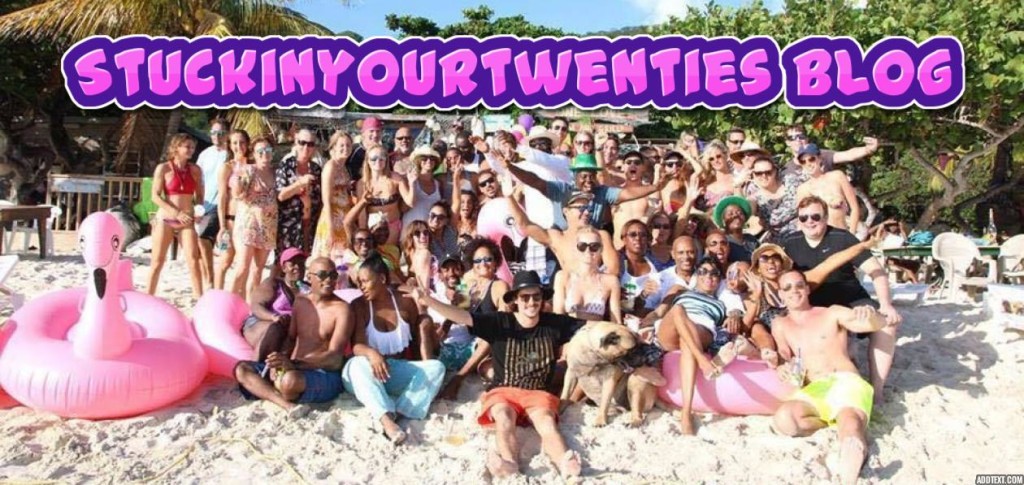
Between the ages of 18 and 27 I took several opportunities to experience life in other counties:
- Ages 18-22: Five summers spent working as an intern/writer for 1 to 3 months in Milwaukee, Wisconsin – “Best Party People” and “Best Hospitality” Awards
- Age 20: Semester spent studying at Sacramento State University in Northern California – “Most Generous Culture” Award
- Age 23: 1 year working as an Editorial Coordinator for Virgin Islands Property Yacht Magazine – “Best Lifestyle” Award
- Age 25: Summer spent working at The Pink Palace Hostel in Corfu, Greece – “Best Place to Spend a Summer” Award
- Age 27: Five weeks working at Casa en el Agua in the San Bernardo Islands, Colombia – “Best Challenge of my Life” Award
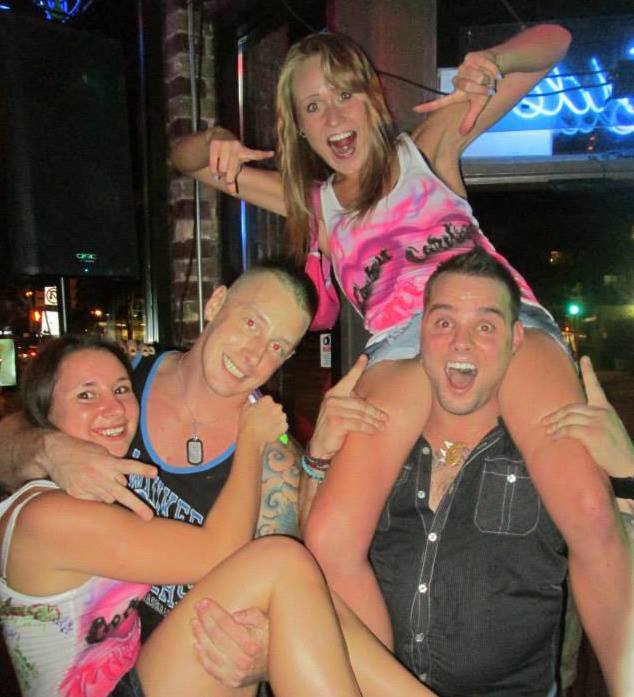

I’m dreaming of a white sand Christmas
Had I knuckled down and focused on full time employment, I’d be better off financially, and further along in a vocation path of some sort. However, the lessons which I learned living abroad taught me many things…including happiness can be found in a humble lifestyle, and ‘breaks’ on the resume can be valuable in the workplace.
These are some of the lessons I can think of which I learned during my experiences working and living in other countries:
-
People who have less are more generous
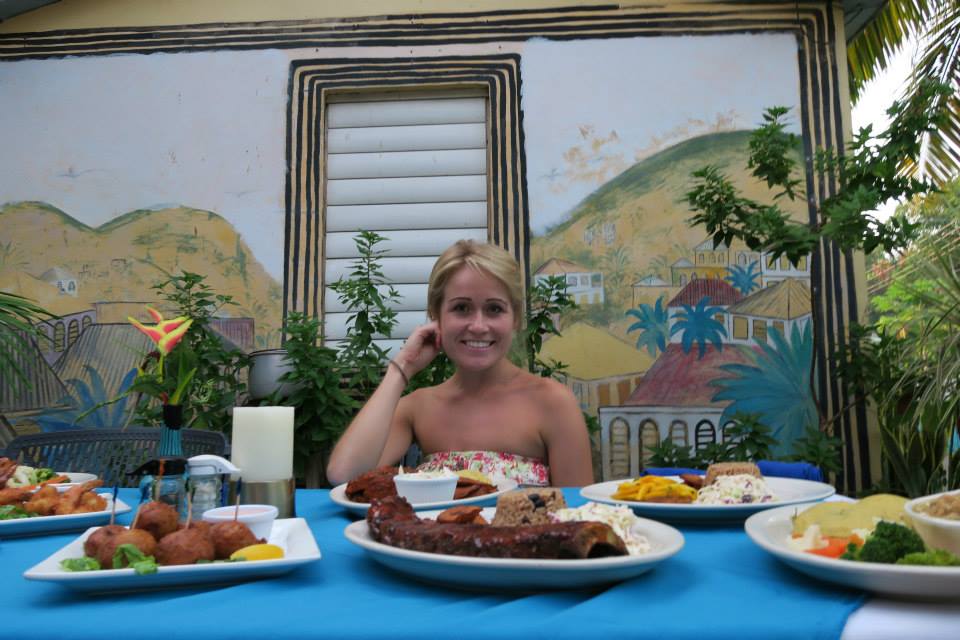
When I lived in the British Virgin Islands, I mingled with the local ‘BVIlanders’ as well as the expat community. My neighbour Chrystall was a Californian girl who met her partner, Abel, in the BVI and they lived together in the one bedroom apartment below me in Road Town.
These two were lovely people; they had me over when I needed company, helped me out with ‘island problems,’ and they even invited me to go to Abel’s mother’s house for Sunday dinner. ‘Mama’ lived humbly in a very island-like home over on the East side of the island, where a majority of the locals lived. She generously prepared a feast of Caribbean dishes for her children, their spouses, and her grandchildren. Though the kitchen and living areas didn’t offer much space to entertain, the family enjoyed being able to spend so much time sharing meals together.
There were many other times when the BVI locals would treat me to a meal and invite me into their homes. It really made me appreciate a simple life, free from the need to indulge in luxuries and materialistic possessions, while embracing genuine kindness.
2. What a difference it makes waking up excited every day, because the weather is always warm
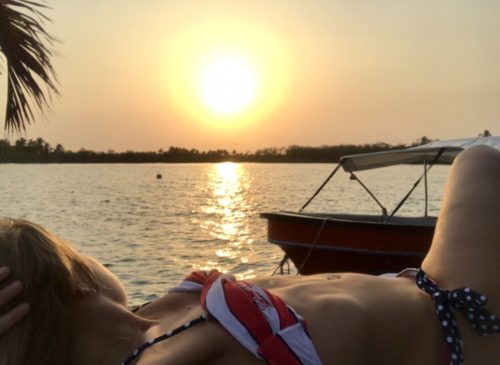
You know when you lay in bed in the morning after a long winter, when spring arrives…you hear the sound of birds outside your window, and it reminds you that nice weather is on its way? That’s the feeling I had every morning when I awoke to the sound of tropical birds in my back yard.
Stepping outside onto the balcony as you witness the sun rise instantly starts your day off right. Spending a year avoiding the dreaded winter mornings made me appreciate how something entirely free can be the key to happiness.
3. Having a washer and dryer in your house is a luxury

In the a British Virgin Islands, it was more common to rent a place without on-site laundry than one that did. Although the idea of taking clothes to a laundromat seems like a huge pain, it’s an easy adjustment. The tedious chore of washing clothes becomes something peaceful, as it allows you time to sit outdoors and do something relaxing, or, it can be a convenient way to make time for a task you need done.
4. Running water is not essential
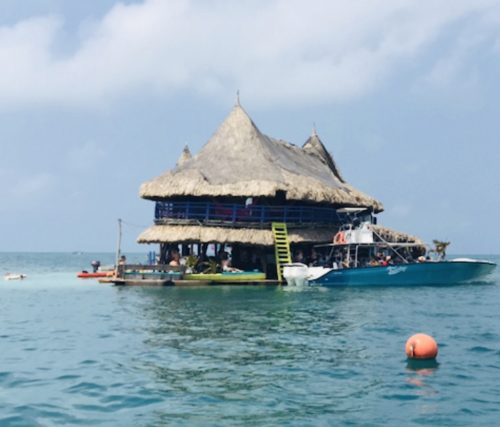
As ‘essential’ as we think it may be, having running water in your house is not essential. Of course, access to water from jugs or another emergency supply source is essential for drinking, bathing, and proper sanitization, but there are ways to perform all those tasks without turning on a faucet.
When I lived in the BVI, I rented a place in the main town, and my only source of water was from the town’s water lines. Infrastructure in the islands was not like we are accustomed to in North America; power outages and water outages were frequent. Some people in town, and those who lived in the hills used a ‘canteen’ water supply. But, if you were like me and relied on the town’s water system, there would be times almost weekly where you’d turn on the tap, and nothing but the dreaded sound of air came out.

This experience knowing to keep emergency water jugs and learning to ‘shower’ with a pot and a cup, enabled me to easily adopt the lifestyle during my time working at Casa en el Agua, an eco-hotel in Colombia. For five weeks I never had access to a flushing toilet, running shower, or even a tap; surprisingly, all the alternate systems in place were very hygienic and well-cleaned.
5. Sunsets never lose their magic
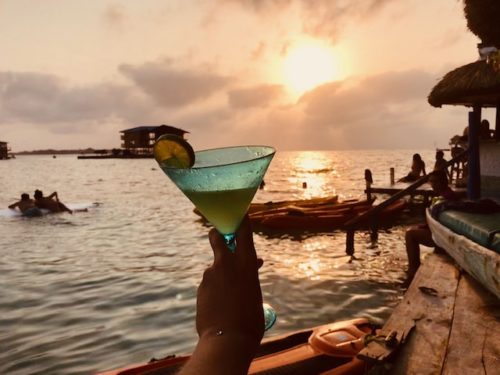
When I lived on islands in The British Virgin Islands, Colombia, and Greece, I witnessed some of the most astonishing sunsets I’d seen in my life. These gorgeous sunsets were a spectacle for both tourists and the people who lived there. Sunsets were the inspiration for local art and photography, and were often a selling point for bars and restaurants offering a ‘spectacular view’ to entertain as the sun fell low in the sky.
Sunsets are particularly colourful in the islands and closer to the equator for several reasons. The view out to the ocean provides an unobstructed view of the sky, which is enhanced by the dust and particles lingering in the atmosphere, creating sunsets’ particular hues. Islands formed from volcanos often experience sunsets with red hues, caused by the lingering volcanic dust in the atmosphere.
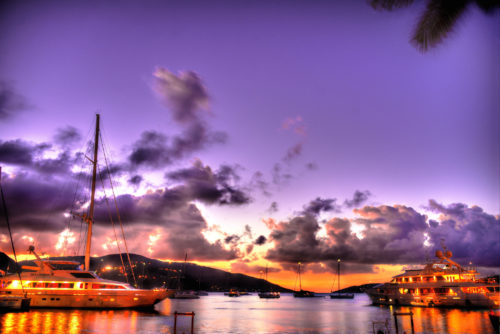
No matter how many times you see a sunset, the beauty of this natural phenomenon never fails to amaze you. Each sunset is unique, and there is something enchanting about the red, yellow, orange, pink and sometimes purple tones which paint the sky; they provide a gorgeous backdrop for photographs or a sunset cocktail.
6. Cell phones and social media are considered essential
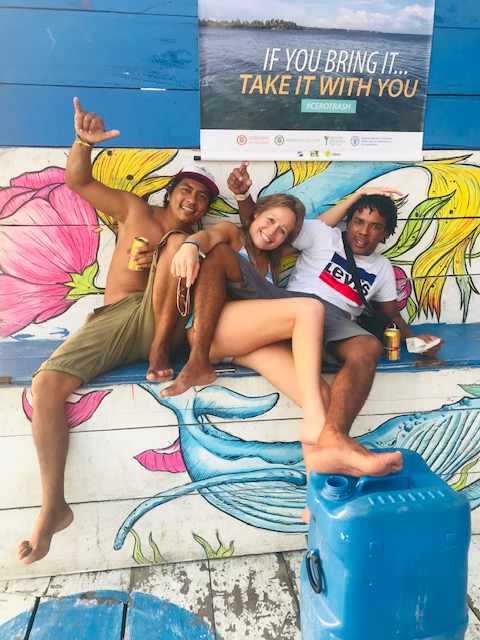
‘Island life’ typically comes with a lot less Western luxuries than we are accustomed to, such as running water, laundry facilities, fast food, Big Box stores, and reliable power. Locals seem to be happy to make do with very little of the things we consider necessities in daily life. However, one thing I noticed people in less wealthy countries cannot live without are cell phones and social media.
Staying connected with each other by calls or texts was a priority of almost every person I met when living in the islands. Cell phones have enabled instant communication, allowing people to meet up easily and exchange information without a hassle. In Western cultures, having a cell phone is expected of everyone, and in recent years, especially since the COVID-19 pandemic, a smartphone is a staple you cannot live without.

As expensive as they may be, smartphones are also popular in islands cultures, primarily for social media. Even in Colombia, the people of Islote, who lived without running water and had minimal electricity, all had Facebook profiles. To them, it was important to stay connected with each other, family on the mainland, and keep in touch with travellers.
7. We take medical care for granted
In Canada, we can appreciate that our government provides us free basic health care, and we do not have to pay for doctor visits or trips to the Emergency Room. We are reminded of this luxury when we compare ourselves to our American neighbours, and we hear stories about hospital bills and charges for emergency medical expenses we wouldn’t dream of.
Whether or not a country provides health care, you have insurance, or you have to pay out of pocket, what can easily be taken for granted is access to medical care and emergency services.
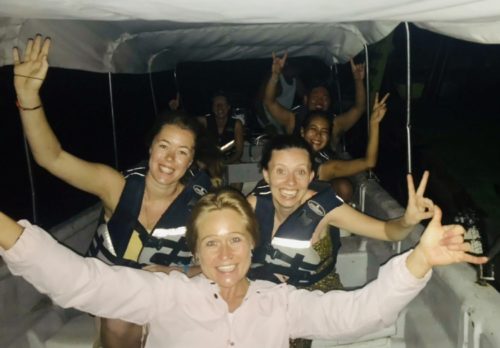
Thanks to these girls behind me who were medical students back home in The Netherlands, I survived a near fatal illness, as there was no emergency medical care near Casa en el Agua, Colombia.
When I worked in Colombia, I almost died from dehydration, as I had to wait until the daily boat came to take me from the remote San Bernardo Islands on a two hour ride to the mainland, Cartagena. I remember being physically sick and not being able to hold water down almost all through the night. By some sort of fate, a group of guests were medical students and made sure I was okay on the boat ride the next day until I was able to get a taxi to the general hospital.
In the San Bernardo Islands, the locals on Islote only had a doctor visit once a month, and a nurse visit once a week. Any emergencies would have to wait until the next day when the only boat departed for Cartagena.
9. People can give up their Western culture and economic status to live with very little
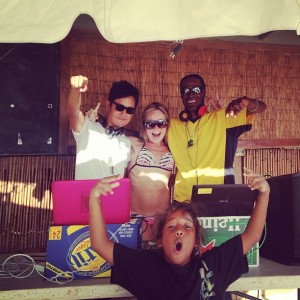
When we travel to foreign countries, we become more aware of the ‘creature comforts’ we enjoy the most at home: TVs with options for Netflix, cable, and YouTube, grocery stores with all our favourite specialty and organic foods, the convenience of fast food restaurants, and malls where we can find almost everything we need in one place. At times when I’ve travelled in the past, often to Caribbean resorts, I’d hear people say after only a week “I’m ready to go home” as they missed Western culture and all the things they are used to in daily life. However, it is possible for people who grow up with all these ‘luxuries’ to give it all up and be happy living humble with very little.
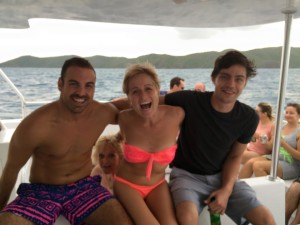
In the BVI, my dance instructor, Diandra Jones, was an American girl from Pennsylvania. Diandra loved to experience the ways of life of other cultures, learn the cultural dances, and how to live the way locals do. I recall her saying to me “I don’t ever want to live with more material possessions than I need, as I’d feel bad knowing less fortunate people don’t even have the essentials.”
When I worked at Casa en el Agua in the San Bernardo Islands in Colombia, I met another girl who worked there,Tammy, who had lived her whole life in London, England. Tammy had grown up fairly well off, and lived life like most British young adults. After a year or so of university, Tammy decided to drop out and travel in Mexico, and then made her way to Colombia where she met her boyfriend who lived on the Island of Islote. She gave up everything she knew about life in London to be in a place without cars, malls, restaurants, and even running water. It’s been over two years since I saw her, and she is still happy living a humble lifestyle on that little island miles away from anything close to the city culture she grew up in.
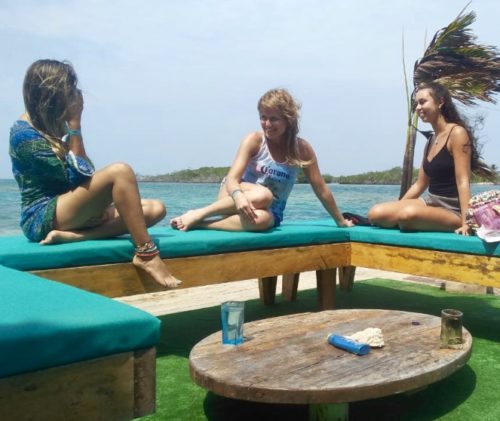
Of course, there are many more life lessons I learned during my experiences away, but these are just a few examples which stood out to me. There is a huge difference between travelling to a place to visit, and learning how to live there. It is not only the lessons you learn by living there which are valuable, but also, the lessons which come from the people you meet along the way.
I’d like to think I’ve shared some life-changing lessons myself during my experiences abroad, and I hope to have more of these rewarding adventures in the future.
Love from Lala.
Follow me on Insta: laurenamelia91
Follow me on Facebook: Stuckinyourtwenties Blog



